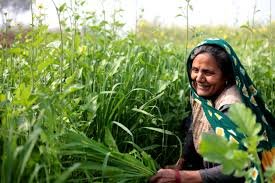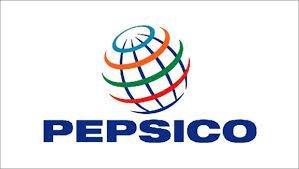PepsiCo Empowers Women in Agriculture: RevolutioNari Awards
PepsiCo aims to impact one million women by 2026 through its RevolutioNari initiative, reinforcing its commitment to enhancing female representation in agriculture
The RevolutioNari Awards, a ground-breaking program to support women’s empowerment in the agriculture industry, have been formally introduced by PepsiCo India. The occasion, which took place in New Delhi, marks a significant turning point in PepsiCo’s continuous initiatives to promote inclusive growth by forming alliances with communities and governments.
The awards highlighted the value of gender equality and innovation in agriculture by recognizing ten female farmers for their exceptional accomplishments in a variety of categories. Prominent individuals in attendance, including Smriti Irani and Dr. Raj Bhushan Choudhary, emphasized the important role women play in promoting agricultural advancement. Through its RevolutioNari project, PepsiCo hopes to have an influence on one million women by 2026, further demonstrating its dedication to increasing the number of women in agriculture. More than 150 professionals attended the event, which also included policy and financial inclusion workshops and conversations to examine innovation and sustainable growth.
Ten female farmers from all around India were honored for serving as role models for women in leadership roles and encouraging countless others to make more significant contributions to the industry. They were chosen following a careful review of nominations received from all throughout the nation. The submissions were examined in five categories by an external jury made up of industry professionals led by Prof. Ramesh Chand, Member, NITI Aayog:
-Breaking Gender Stereotypes & Implementing Best Farming Practices: Tapasi Pal from West Bengal awarded Gold and Sanju Yogi from Rajasthan awarded Silver
-Economic Empowerment through SHGs: Ganapathi SHG from Telangana awarded Gold and Sarayan Farmer Producer Company Ltd. from Uttar Pradesh awarded Silver
-Innovation in Sustainable Agriculture: Shivani Kisku from Jharkhand awarded Gold and Manguben Jaga from Gujarat awarded Silver
-Protection and Promotion of Native Indigenous Food Systems: Monika Mohite from Maharashtra awarded Gold and Sujata Paramanik from West Bengal awarded Silver
-Youth Innovators in Agriculture: Surbhi Kumari from Bihar awarded Gold and Anima Aind from Jharkhand awarded Silver
Knowledge exchanges, workshops, and lively panel discussions characterized the event. Insightful workshops were created to give farmers the skills and information they need to prosper in the changing agricultural environment. The advancement of resilience and gender equality in agriculture was the main topic of the panel talks. In order to empower women as change agents, “Policy Perspectives: Advancing Gender Equality in Agriculture” focused on specific policies and training. The article “Empowering Women Through Financial Inclusion, Innovation, and Technology” emphasized how innovation may improve women’s access to resources. In order to create a sustainable and resilient future, “Seed to Smile: Cultivating Resilience for a Better Tomorrow” examined climate-smart methods and farmer empowerment. The RevolutioNari Conference and Awards 2024 drew more than 150 professionals from the agricultural sector, including academicians, corporates, opinion leaders, agronomists, and policymakers.
PepsiCo aims to impact one million women







